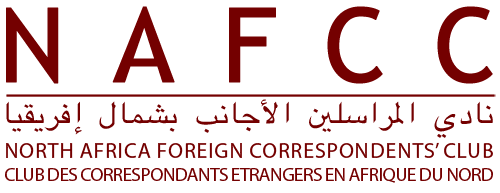Le NAFCC exprime son inquiétude devant la pression grandissante à laquelle sont soumis les journalistes étrangers travaillant en Tunisie.
Le dernier incident en date s’est produit dimanche 14 janvier au détriment de Michel Picard, correspondant français de RFI, qui couvrait la visite du président tunisien Béji Caïd Essebsi à Ettadhamen, à l’ouest de Tunis.The NAFCC expresses its concern at the growing pressure faced by foreign journalists working in Tunisia.
In the latest incident on Sunday, January, 14th, Michel Picard, the french correspondent of RFI, who was covering the visit of the tunisian president Beiji Caïd Essebsi in Ettadhamen, west of Tunis, was briefely detained while reporting.
Les policiers lui ont d’abord interdit de discuter avec les personnes rassemblées pour l’inauguration d’une maison des jeunes par Béji Caïd Essebsi. Le journaliste s’est donc éloigné pour mener à bien ses interviews. Un homme, refusant de décliner son identité, l’a saisi par le bras et l’a emmené près d’un véhicule de l’armée. Après avoir attendu 15 minutes sans obtenir aucune information, le journaliste a décidé de reprendre son travail.
Plus tard, alors qu’il s’apprêtait à partir, une voiture de la Garde nationale l’a interpellé. Au poste, Michel Picard, dûment accrédité par l’Etat tunisien, a dû répondre à des questions concernant le fait qu’il était non accompagné. Si l’échange est resté courtois, le journaliste a dû signer un document en arabe, sans traduction officielle, avant d’être autorisé à partir.
Le NAFCC déplore également un excès de zèle des policiers chargés de filtrer l’accès à l’avenue Habib-Bourguiba où avaient lieu des rassemblements aujourd’hui. Des journalistes, notamment cameramen et photographes, ont été bloqués plusieurs minutes sous prétexte de contrôler leurs papiers. Ces journalistes avaient leur carte de presse délivrée par les services de la communication de la présidence du gouvernement et leurs autorisations de filmer.
Les incidents de ce dimanche surviennent trois jours après la convocation du journaliste indépendant Mathieu Galtier par la Garde Nationale du Bardo à Tunis où il a été prié de révéler l’identité de ses contacts, exigence contraire aux standards internationaux régissant la liberté de la presse.
Le NAFCC appelle les forces sécuritaires tunisiennes à respecter le travail des journalistes conformément aux engagements pris par les autorités tunisiennes elles-mêmes.
Policemen first banned him from talking to people who had gathered around the Youth Club that the president was inaugurating. The journalist then walked away to do some interviews. A man, refusing to introduce himself, held him firmly by the arm and took him to a military vehicule. After waiting there 15 minutes with no information, the journalist then decided to walk away and resume reporting.
Later as he was leaving the area, he was picked up by a car from the Garde nationale. At the police station, Michel Picard, who is officially registered as a journalist with the tunisian State, was asked why he was wandering alone. The tone was polite, but he was only released after signing a document in arabic, with no translation.
The NAFCC also regrets the excessive zeal of the policemen in charge of screening people around the avenue Habib Bourguiba in Tunis, where gatherings were taking place today. Journalists, including cameramen and photographers, were blocked for several minutes under pretext of controlling their documentation.
These journalists had official press cards from the Prime minister’s communication office, as well as an an official authorization to film.
These incidents come three days after another journalist, free-lancer Mathieu Galtier, was summonded to the Garde Nationale office in the Bardo in Tunis, where he was asked to reveal the name of his contacts and sources, against all international standards of press freedom.
The NAFCC calls on the tunisian security forces to respect the work of journalists in accordance with the commitements taken by tunisian authorities themselves.
